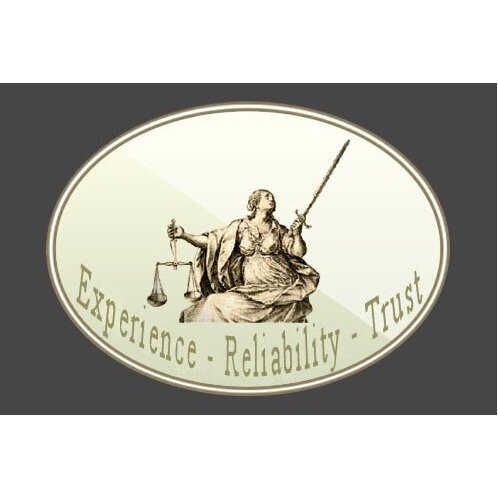Best Education Law Lawyers in Pattaya
Share your needs with us, get contacted by law firms.
Free. Takes 2 min.
List of the best lawyers in Pattaya, Thailand
About Education Law in Pattaya, Thailand
Education law in Pattaya, Thailand, is part of the national educational framework governed by a combination of the Constitution of the Kingdom of Thailand, the National Education Act, and other relevant regulations. These laws cover a broad spectrum of issues related to the education system, including the rights and responsibilities of students, teachers, educational institutions, and the government. Education laws ensure the standardization of educational quality while promoting equal access to education for all Thai citizens, including regulations concerning the operation of both public and private educational institutions.
Why You May Need a Lawyer
Individuals may require legal advice in the field of education law for various reasons. Common situations include disputes regarding the interpretation of educational policies, conflicts involving student rights, cases of discrimination, issues surrounding special education services, and litigation between educational institutions and employees. Additionally, parents, students, or school administrators might need legal assistance when dealing with cases of disciplinary action, allegations of misconduct, or navigating the complexities of educational reforms and contracts.
Local Laws Overview
Pattaya, like the rest of Thailand, adheres to national education laws but also respects specific local regulations that might affect schools in the area. Key aspects include:
- Compulsory Education: Children in Thailand are required by law to complete six years of primary education and three years of lower secondary education.
- Rights to Education: The law guarantees equal rights to education without discrimination based on race, gender, religion, or economic status.
- Teacher Standards: Teachers and educational administrators must meet certain qualifications and standards set by the Teachers Council of Thailand.
- Private Education Institutions: Stringent licensing and operational regulations are in place for private schools.
- Special Education: Laws require that children with disabilities have access to appropriate education services.
Frequently Asked Questions
What is the age range for compulsory education in Thailand?
Children in Thailand are required to complete nine years of schooling, typically starting at age six and continuing until the age of fifteen.
Are private schools subject to the same laws as public schools?
Yes, private schools must comply with national and local educational regulations, although they may have different curricular focus areas or fee structures.
How can parents address concerns about special education needs?
Parents should first communicate with the school's special education coordinator. If issues persist, they may seek legal advice to ensure their child receives the appropriate support.
What legal protections are in place against discrimination in schools?
The Constitution and educational regulations prohibit discrimination in schools based on various attributes, including gender, ethnicity, and disability status.
Is homeschooling legal in Thailand?
Yes, homeschooling is legal, but families must apply and register with the local education authorities, ensuring they follow a government-approved curriculum.
What are the consequences for schools not complying with education laws?
Schools found in violation of education laws may face penalties such as fines, suspension of operations, or closure, dependent on the severity of the breach.
Can foreign students attend Thai schools?
Yes, foreign students can attend Thai schools, but they may need to meet specific visa and enrollment requirements set by the educational institution.
What should a teacher do if facing unfair dismissal?
Teachers should review their employment contract and seek legal counsel to understand their rights and potential actions under Thai labor laws relevant to education.
How are disputes between parents and schools typically resolved?
Disputes often begin with mediation between the involved parties. If unresolved, they may escalate to legal action, which might involve arbitration or litigation.
Where can I report misconduct at a school?
Misconduct can be reported directly to school administration or escalated to the local education authorities if necessary.
Additional Resources
There are several resources and organizations that can be helpful for those seeking advice or information on education law in Pattaya:
- The Ministry of Education Thailand
- The Office of the Basic Education Commission
- Local Pattaya Education Authorities
- The Teachers Council of Thailand
- Law firms specializing in education law
Next Steps
If you require legal assistance in education law, it is advisable to consult with a specialized lawyer to discuss your situation in detail. Begin by gathering all relevant documents and information related to your issue. You can contact local legal firms in Pattaya that have expertise in education law for an initial consultation. Additionally, consider reaching out to local educational authorities for guidance and support in navigating any educational policy matters. Engaging with legal professionals will provide clarity and direction in seeking a resolution to your concerns.
Lawzana helps you find the best lawyers and law firms in Pattaya through a curated and pre-screened list of qualified legal professionals. Our platform offers rankings and detailed profiles of attorneys and law firms, allowing you to compare based on practice areas, including Education Law, experience, and client feedback.
Each profile includes a description of the firm's areas of practice, client reviews, team members and partners, year of establishment, spoken languages, office locations, contact information, social media presence, and any published articles or resources. Most firms on our platform speak English and are experienced in both local and international legal matters.
Get a quote from top-rated law firms in Pattaya, Thailand — quickly, securely, and without unnecessary hassle.
Disclaimer:
The information provided on this page is for general informational purposes only and does not constitute legal advice. While we strive to ensure the accuracy and relevance of the content, legal information may change over time, and interpretations of the law can vary. You should always consult with a qualified legal professional for advice specific to your situation.
We disclaim all liability for actions taken or not taken based on the content of this page. If you believe any information is incorrect or outdated, please contact us, and we will review and update it where appropriate.













